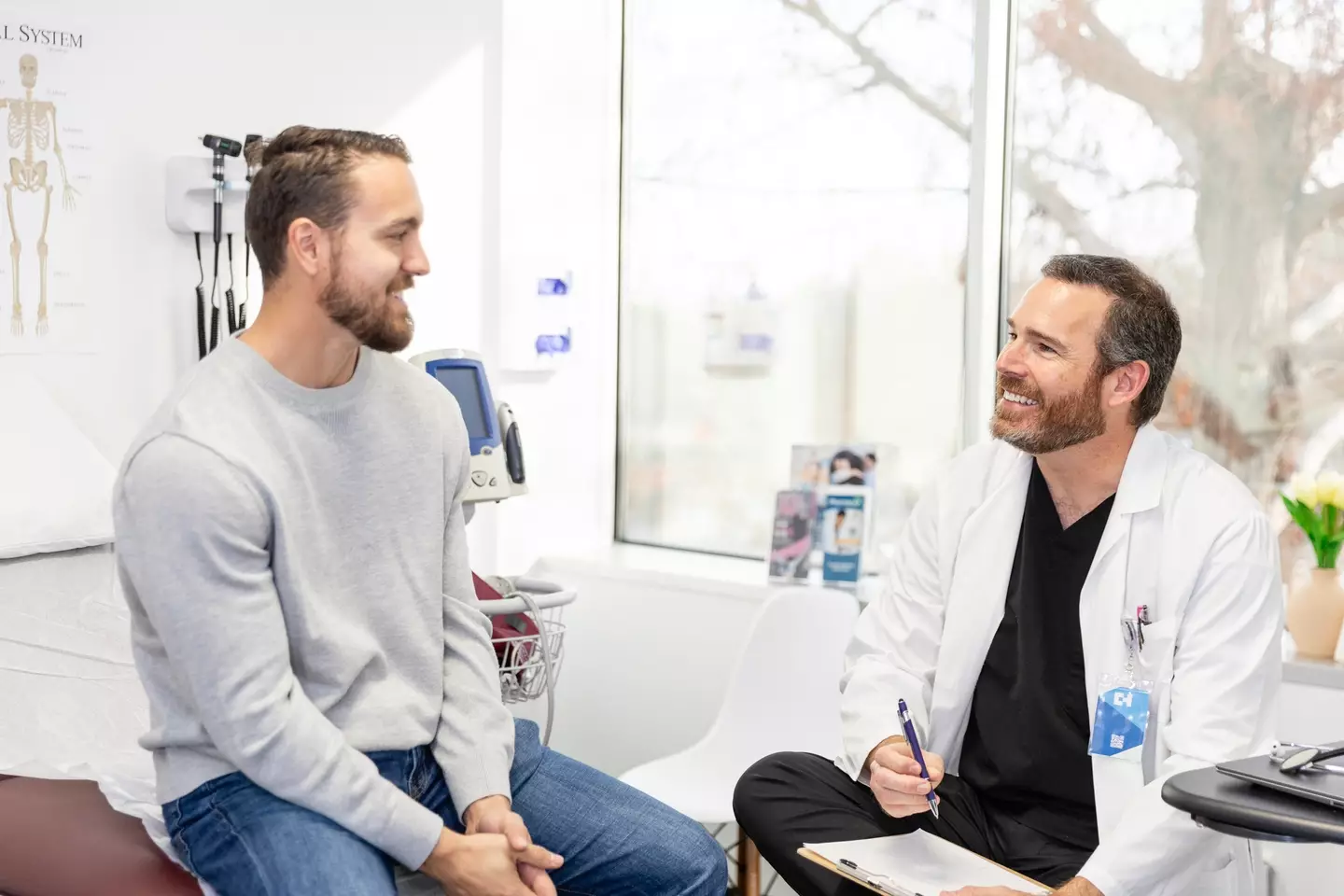Doctors advise young individuals to be aware of early signs of colon cancer.
A study in 2023 by The American Cancer Society indicated that 20 percent of colorectal cancer cases in 2019 were diagnosed in people under 55 in the US. This is a significant increase from 1995, when only 11 percent of cases were found in this age group.
Additionally, advanced disease rates have risen by 3 percent. Yale colorectal surgeon Haddon Pantel mentioned there’s “a clear uptick in colorectal cancer in younger generations,” as reported by Yale Medicine.

Given this increase, doctors estimate there could be up to 53,000 deaths from colon cancer in the US this year, The American Cancer Society reports.
For men, it ranks as the third-leading cause of cancer-related deaths, while for women, it’s the second most common cause.
Fortunately, experts identify several key symptoms of colon cancer to watch for.
A 2024 study found that about 15 percent of people under 55 reported losing their appetite four to six months before being diagnosed.
Though weight loss might be normal if you are exercising or dieting, losing five percent of your body weight over six months without trying is a reason to see a doctor.

If you notice blood on your toilet paper after wiping, seek medical attention immediately.
Researchers found nearly half of those diagnosed with colon cancer experienced rectal bleeding before their diagnosis.
Speaking to Self, Dr. Andrea Cercek, a gastrointestinal oncologist at the Memorial Sloan Kettering Cancer Center in New York, said: “Blood from those tumors has a shorter distance to travel, so it comes out bright red, while blood that’s been in the digestive tract for a while can look almost black.”
Even if it’s not colon cancer, anal bleeding should be evaluated by a doctor right away.
Persistent stomach cramps, especially around meal times, could also be a symptom of colorectal cancer. However, this pain might also be caused by conditions like irritable bowel syndrome (IBS) or menstrual cramping.
Sonia Kupfer, Director of the Gastrointestinal Cancer Risk and Prevention Clinic at the University of Chicago Medicine, told the publication when to seek help.
She said: “If it’s abdominal pain that’s new or different from what you’ve experienced before, that’s a reason to see your doctor.”

Eight percent of participants in the 2024 study reported experiencing fatigue before their diagnosis.
According to The New York Post, extreme fatigue might result from tumor-related hormones depleting your energy.
Colorectal cancer can also alter bowel habits, says Tiago Biachi, a GI medical oncologist.
He explained to Self: “Often, a tumor in your colon or rectum will—like a clog in a pipe—change the way you poop.
“That may mean frequent constipation, diarrhea, or both. In other cases, people don’t feel ’empty’ after going, or they notice their poop is looking different than before [slimmer than usual for example].”
Dr. Michael Cecchini told HuffPost that “thin stools” are also common among cancer patients.
Another sign to watch for, according to Dr. Kupfer, is digestive issues combined with other symptoms like fatigue or blood in the stool.

Tumor bleeding in the colon can cause anemia in younger individuals.
Anemia, characterized by a lack of red blood cells, affects energy levels, cognitive function, and immune response.
Symptoms of anemia include dizziness, shortness of breath, headaches, and pale or yellowish skin, according to Mayo Clinic.
To detect colon cancer, a colonoscopy is necessary. This procedure involves a thin camera being inserted into the rectum.
UC Davis Health notes that in 2021, the recommended age for colon cancer screenings was lowered to 45 years from 50. However, they advise seeking screening if you display symptoms of colon cancer.

